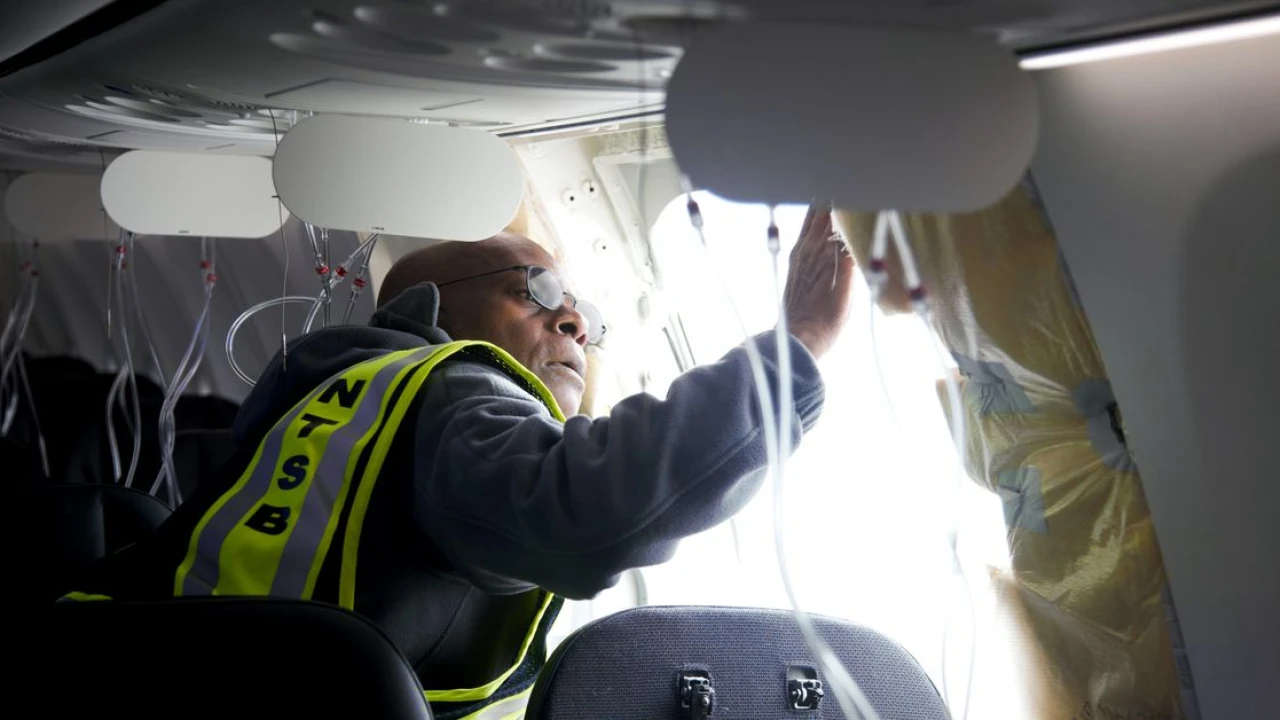Regional
How to think about Boeing’s recent safety issues
Flying is still extremely safe. But Boeing’s safety issues are real.

Another week, another series of bad news stories for Boeing.
On Monday, 50 people were injured (none were killed) when a 787 “dropped abruptly” midflight from Sydney to Auckland. That same day, the New York Times reported that a Federal Aviation Administration investigation into the production of the 737 Max jets found that the company failed 33 of the 89 product audits at the factory where the planes are being built. The FAA’s inspection was connected to the alarming incident in which a door plug blew out of a Max 9 midflight in January.
It’s worth underscoring: Air travel remains extremely safe. As my colleague Marina Bolotnikova writes, the number of Americans killed on US commercial fights in the last 10 years is two. During that same period, 365,000 Americans were killed in car crashes.
In fact, the reason Boeing’s recent failures have attracted so much scrutiny is because these types of events are so rare.
That said, reporting on Boeing’s plane problems — and reading Whizy Kim’s piece from late January diving deep into the corporate issues at the company — have made me more appreciative of the risks posed by a combination of profit-driven corporate culture, inadequate regulation, and strained resources.
“The Boeing story is far from over,” Matthew Oliver, an aerospace engineer formerly with the Canadian Armed Forces and expert in complex systems failures and forensic investigations, told me.
It’s “like an onion,” he says. “There are so many layers to the Boeing failure.”
Let’s peel them back.
Profits over planes
The flight control features that caused the 737 Max planes to crash in 2018 and 2019 and the missing bolts that caused the door plug to fly off in the January flight incident are totally different, but there’s a common theme around criticisms of the company: Investigators and journalists say that Boeing sometimes valued cost- and corner-cutting measures over the objections of its employees.
It wasn’t always this way. For years, the culture of Boeing was one of pride in their engineering innovation and the high value they placed on product safety. But that started to change in the late 1990s. As Whizy writes:
In Flying Blind: The 737 MAX Tragedy and the Fall of Boeing, journalist Peter Robison describes an environment where safety concerns were concealed or downplayed, in part to be faster and cheaper than Airbus, the former underdog that overtook Boeing as the biggest commercial aircraft manufacturer in the world in 2019.
Executives and shareholders got rich, she writes, while tensions roiled in the rank and file, who argued that the company needed to be investing more in the people who built the planes and ensured their safety.
In 2000, Boeing’s engineers went on strike; between 2019 and 2020, the company laid off thousands of people, raising concerns about the experience of those hired when the company began staffing up again post-pandemic.
Workers-turned-whistleblowers complained about serious safety problems they said they witnessed while working on Boeing planes. (One of the whistleblowers, John Barnett, died by suicide this week after giving interviews related to a lawsuit against the company. Barnett’s family said he was struggling with “PTSD and anxiety attacks” related to the “hostile work environment at Boeing”; the company issued a statement expressing their condolences without responding directly to the allegations.)
The problems at Boeing may have a lot to do with corporate culture, but the company’s struggles aren’t happening in a vacuum.
Critics also point to the FAA’s regulation of the manufacturing giant and have questions about whether the agency is sufficiently funded and independent enough to provide proper oversight. One of the FAA’s practices — allowing manufacturers to “self-certify” that their planes meet US safety regulations — is the subject of particular scrutiny.
Ganesh Sitaraman, a law professor at Vanderbilt and the author of Why Flying Is Miserable, says, “The reality is that markets need good, strong rules to work. Without those rules, the profit motive means that people will cut corners, squeeze and exploit consumers, and engage in all kinds of anticompetitive behavior.”
With so much public attention on the company and the government, both are now taking steps to demonstrate publicly that they’re working to ensure the safety of the planes. “[W]e continue to implement immediate changes and develop a comprehensive action plan to strengthen safety and quality, and build the confidence of our customers and their passengers. We are squarely focused on taking significant, demonstrated action with transparency at every turn,” the company said in a statement.
Those familiar with the long-running problems, though, are not so easily assured.
Should you fly on a Boeing?
The chances that something bad will happen to you while flying are still extremely low. As the National Safety Council notes, the passenger vehicle death rate per 100 million miles is 595 times higher than it is for scheduled airlines. For most people, that should be all they need to know.
That said, if you decide you don’t want to fly on a Boeing Max anymore, you aren’t alone. A former senior manager for Boeing’s 737 Max program and the executive director of the Foundation for Aviation Safety won’t fly in one. Oliver feels similarly: “I would avoid flying on a recent Boeing product as much as possible.”
On the Foundation for Aviation Safety’s website, there’s a page that offers advice for people looking to avoid flying on a Max. Alternative Airlines has info, too.
The gist: Check the flight details when booking your ticket to see what kind of plane is listed. Sign up for status updates from the airline. Then, on your day of travel — and this is crucial — check again with your airline or a site like Flightradar24 to make sure it’s the same kind of plane, since airlines can and often do swap planes if one needs service or repair. If you find yourself booked on a Max, you can ask the ticket agent if you can be rebooked for a different flight.
Ultimately, though, you might have to weigh your tolerance for remote risk against the serious inconvenience of rebooking a flight — and the safety risks in whatever alternative modes of transportation you’re considering.
Just remember, it can be true that Boeing has safety issues and that flying is still very safe. Also, driving is (much, much) worse. Happy travels!
This story appeared originally in Today, Explained, Vox’s flagship daily newsletter. Sign up here for future editions.
-

 Pakistan 2 days ago
Pakistan 2 days agoBushra Bibi's allegations against Saudi Arabia 'baseless': Ex-COAS Qamar Bajwa
-

 Pakistan 1 day ago
Pakistan 1 day agoGovt to suspend internet services amid PTI protest
-

 Pakistan 2 days ago
Pakistan 2 days agoNobody to be allowed to stage sit-in or gathering in capital: Naqvi
-

 Pakistan 2 days ago
Pakistan 2 days agoCOAS Asim Munir vows to dismantle hostile terrorist networks
-

 Business 2 days ago
Business 2 days agoGold prices rise sharply in Pakistan
-

 Sports 12 hours ago
Sports 12 hours agoPakistan win toss, opt to field first against Zimbabwe in 1st ODI
-

 Sports 2 days ago
Sports 2 days agoPCB appoints Azhar Ali as head of youth development
-

 Pakistan 1 day ago
Pakistan 1 day agoNo protest or rally is allowed in Islamabad, says Naqvi
































